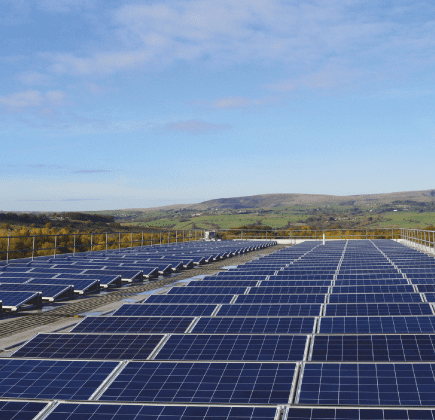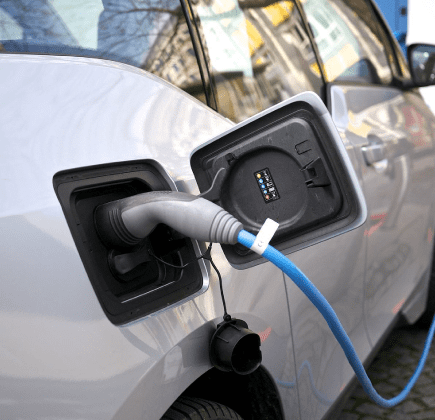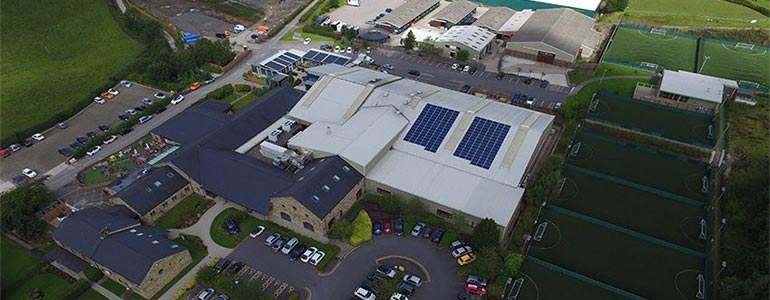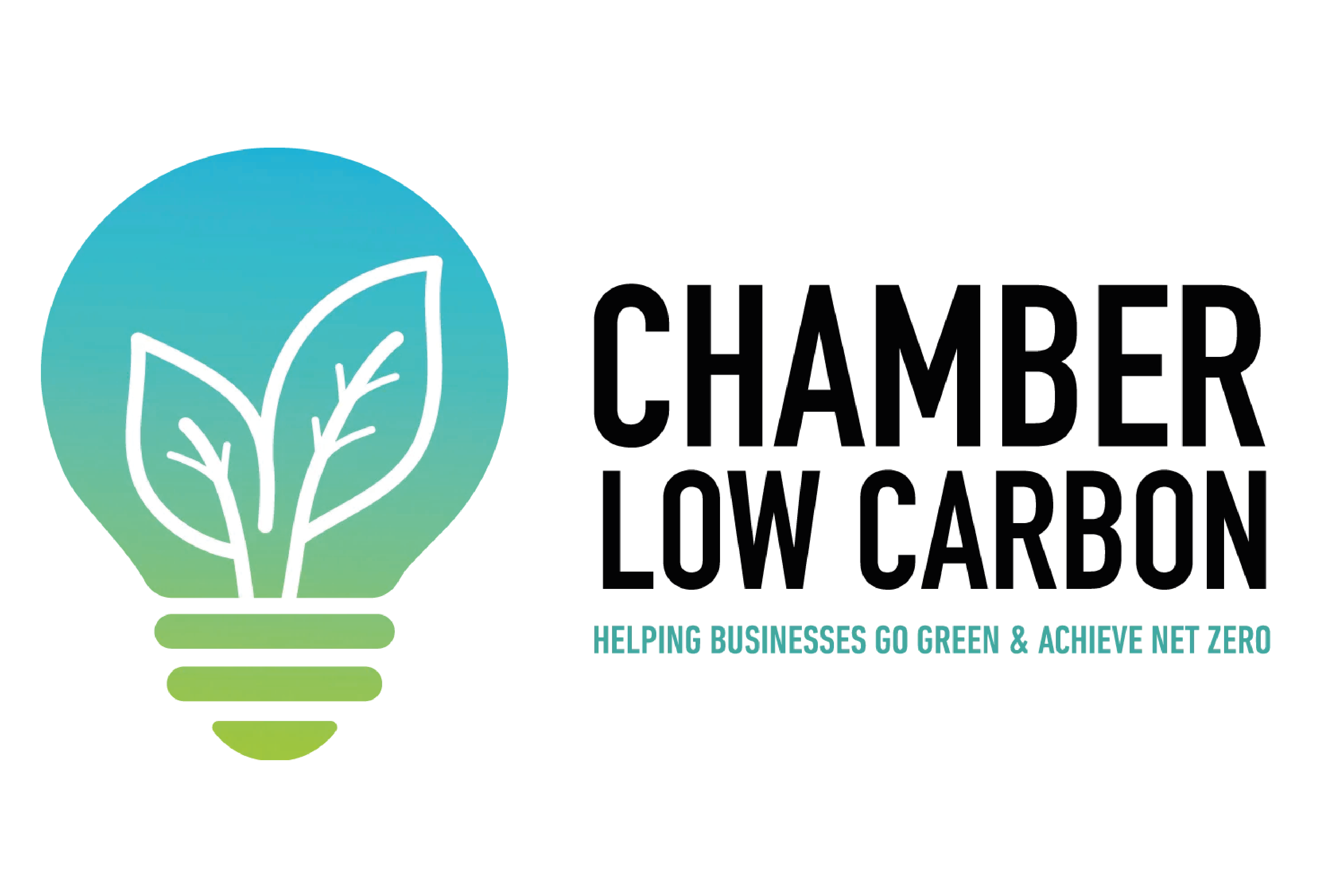
UK green agenda & net zero journey in 2025
As we begin another brand new year in this pivotal decade for climate change, there’s no question that the pressure is on for the UK to take decisive action to tackle the climate crisis. That pressure is something that probably a lot of government ministers can acutely appreciate, with widespread expectations on them not just to make more stringent climate commitments, but – crucially – actually deliver on them. With that in mind, are seven key policies that we’d recommend keeping an eye on this year; not just for their implications for commercial solar panels, but also the nation and even the world at large.

Three years ago, the UK government introduced a wave of green policy ambitions. At the time, it signalled a shift in how the country intended to tackle climate change. Businesses were told the 2020s would be a defining decade for climate action, with long-term frameworks laid out for energy, waste, food, skills, and sustainability in education.
Now that we’re in 2025, it’s time to take a step back. Have those policies translated into meaningful change? Have businesses had the tools, or the clarity, to take the next step? And just as importantly, are we still heading in the right direction?
Here’s where we are now, what we’ve learned, and what comes next for businesses looking to move forward.
Why did the 2022 green agenda set the stage for urgent action?
In late 2021, the UK government released its Net Zero Strategy: Build Back Greener. It marked a shift in tone and urgency, laying out detailed plans across energy, transport, buildings, and more. For many businesses, this was the push they needed to start taking sustainability more seriously.
To provide a comprehensive overview, here are seven key UK green policies that continue to shape the business landscape in 2025:
- Resources and Waste Strategy: Designed to increase national efficiency and cut waste, this strategy proposed a national deposit return scheme, reforms to extended producer responsibility, and weekly food waste collections.
- Environment Act: After years of delays, the Act established frameworks for environmental protection in a post-Brexit UK. It also empowered the Office for Environmental Protection to enforce accountability around water, air quality, biodiversity, and waste targets.
- Skills Strategy: Though controversial in its early detail, the strategy committed to creating up to 2 million green jobs by 2030. Debate continues over definitions, but its focus on upskilling and reskilling remains key to the net zero transition.
- Sustainability and Climate Change Strategy for Education: Introduced during COP26, this strategy aims to embed climate awareness into the UK’s education system, supporting both curriculum reform and decarbonisation of school estates.
- National Food Strategy: This independent review proposed major reforms to improve food system sustainability, including reducing red meat consumption and linking agricultural subsidies to environmental outcomes.
- Plans to Meet New Energy Targets: These include the end of unabated fossil-fuel electricity generation by 2035, and renewed investment in nuclear, hydrogen, solar, and wind to secure long-term supply and reduce emissions.
- The Climate and Ecological Emergency Bill: Gaining momentum in Parliament and beyond, this proposed legislation would reshape how the UK calculates its emissions footprint, accounting for international trade, shipping, and aviation.
These policies set expectations across the board. Businesses were encouraged to align with long-term goals and were given clearer guidance on where to focus. As a result, we saw real momentum the following year.
In 2022, the UK recorded its highest-ever level of zero-carbon electricity generation, reaching 138 terawatt-hours. It was a tangible sign that national direction, backed by policy and business engagement, can produce meaningful results.
This wasn’t just political theatre. The figures showed that when government leads clearly and businesses respond with action, measurable progress follows. It proved that coordinated effort can move the needle on emissions, and that real change is possible when there’s alignment between policy, infrastructure, and business action.
What the UK has achieved so far?
So, what has the UK achieved so far? There has been real progress in key areas.
For example, the closure of the last coal-fired power station in 2024 marked a symbolic and practical step forward. Investment in offshore wind has accelerated. And more school sites are being powered by renewable energy, showing how sustainability can be embedded into public infrastructure.
The Climate and Nature Bill is a good example too. Although it was introduced more recently, it’s gaining traction across Parliament. In 2025, it reflects a growing recognition that environmental accountability must be embedded not just in policy, but in business strategy and infrastructure planning.
How solar supports the UK’s net zero goals
Among all the available options for businesses, solar remains one of the most accessible and proven ways to contribute to net zero. But how did we get here?
Since 2022, the role of solar has expanded significantly. Businesses are choosing to invest in renewable energy on-site, especially as grid prices remain unpredictable.
At Low Carbon, we’ve supported organisations across multiple sectors to incorporate solar into their energy strategies. From large-scale hospitality sites to manufacturing operations.
With more incentives and funding options becoming available for commercial installations, the case for solar is stronger than ever.
Speak to Solar Energy Experts
At Low Carbon Energy, we help businesses take practical steps toward energy independence and carbon reduction.
We want to help organisations like yours build resilience through infrastructure. The right time to start was probably three years ago, but the next best time is now.
 Energy Technology
Energy Technology

Powering your present. Preserving your future.
Call us on 01282 421 489

strategy be a priority?













